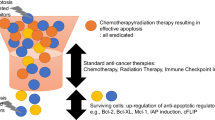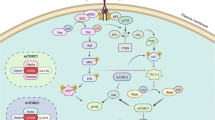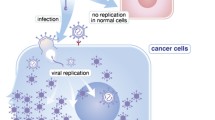Abstract
Malignant melanoma is the most aggressive form of skin cancer and has proven to be highly resistant to conventional chemotherapy. Intriguingly, the p53 tumor suppressor, a main mediator of chemoresistance in other tumor types, is rarely mutated in melanoma. However, we have previously shown that anti-apoptotic isoforms of p73 (ΔTA-p73), another member of the p53 family, are overexpressed in metastatic melanomas. ΔTA-p73 can oppose the pro-apoptotic functions of p53 and full length p73, and thus it could contribute to melanoma chemoresistance. In this study, we use an efficient adenoviral-based gene transfer approach to introduce a transcriptionally active form of p73 (TA-p73β) in melanoma cells, with the objective of overcoming drug resistance. Interestingly, TA-p73β significantly sensitized 5 out of 7 aggressive melanoma cell lines to the standard therapeutic agents adriamycin and cisplatin. More importantly, TA-p73β displayed a synergistic effect in vivo allowing adriamycin or cisplatin to block melanoma cell growth in mouse xenograft models (p < 0.05). In summary, our data show that Ad-mediated TA-p73β gene expression can markedly sensitize a subset of melanoma cell lines to adriamycin and cisplatin in vitro and in vivo, suggesting a new chemosensitization strategy for malignant melanomas.
Similar content being viewed by others
References
Bajetta E, Del Vecchio M, Bernard-Marty C, et al. Metastatic melanoma: chemotherapy. Semin Oncol. 2002; 29: 427–445.
Soengas MS, Lowe SW. Apoptosis and melanoma chemoresistance. Oncogene 2003; 22: 3138–3151.
Grossman D, McNiff JM, Li F, Altieri DC. Expression and targeting of the apoptosis inhibitor, survivin, in human melanoma. J. Invest. Dermatol. 1999; 113: 1076–1081.
Soengas MS, Capodieci P, Polsky D, et al. Inactivation of the apoptosis effector Apaf-1 in malignant melanoma. Nature 2001; 409: 207–211.
Davies H, Bignell GR, Cox C, et al. Mutations of the BRAF gene in human cancer. Nature 2002; 417: 949–954.
Lubbe J, Reichel M, Burg G, Kleihues P. Absence of p53 gene mutations in cutaneous melanoma. J. Invest. Dermatol. 1994; 102: 819–821.
Chin L, Pomerantz J, Polsky D, et al. Cooperative effects of INK4a and ras in melanoma susceptibility in vivo. Genes. Dev. 1997; 11: 2822–2834.
Stiewe T, Putzer BM. Role of p73 in malignancy: tumor suppressor or oncogene? Cell Death Differ. 2002; 9: 237–245.
Gong JG, Costanzo A, Yang HQ, et al. The tyrosine kinase c-Abl regulates p73 in apoptotic response to cisplatin-induced DNA damage. Nature 1999; 399: 806–809.
Yuan ZM, Shioya H, Ishiko T, et al. p73 is regulated by tyrosine kinase c-Abl in the apoptotic response to DNA damage. Nature 1999; 399: 814–817.
Irwin MS, Kondo K, Marin MC, Cheng LS, Hahn WC, Kaelin WG Jr. Chemosensitivity linked to p73 function. Cancer Cell 2003; 3: 403–410.
Chen X, Zheng Y, Zhu J, Jiang J, Wang J. p73 is transcriptionally regulated by DNA damage, p53, and p73. Oncogene 2001; 20: 769–774.
Bergamaschi D, Gasco M, Hiller L, et al. p53 polymorphism influences response in cancer chemotherapy via modulation of p73-dependent aoptosis. Cancer Cell 2003; 3: 387–402.
Stiewe T, Zimmermann S, Frilling A, Esche H, Putzer BM. Transactivation-deficient DeltaTA-p73 acts as an oncogene. Cancer Res. 2002; 62: 3598–3602.
Zaika AI, Slade N, Erster SH, et al. DeltaNp73, a dominant-negative inhibitor of wild-type p53 and TAp73, is up-regulated in human tumors. J. Exp. Med. 2002; 196: 765–780.
Vossio S, Palescandolo E, Pediconi N, et al. DN-p73 is activated after DNA damage in a p53-dependent manner to regulate p53-induced cell cycle arrest. Oncogene 2002; 21: 3796–3803.
Zhang H, Schneider J, Rosdahl I. Expression of p16, p27, p53, p73 and Nup88 proteins in matched primary and metastatic melanoma cells. Int. J. Oncol. 2002; 21: 43–48.
Tuve S, Wagner SN, Schittek B, Putzer BM. Alterations of DeltaTA-p73 splice transcripts during melanoma development and progression. Int. J. Cancer 2004; 108: 162–166.
Stiewe T, Theseling CC, Putzer BM. Transactivation-deficient Delta TA-p73 inhibits p53 by direct competition for DNA binding: implications for tumorigenesis. J. Biol. Chem. 2002; 277: 14177–14185.
Rödicker F, Pützer BM. p73 is effective in p53-null pancreatic cancer cells resistant to wild-type TP53 gene replacement. Cancer Res. 2003; 63: 2737–2741.
Glinsky GV, Glinsky VV, Ivanova AB, Hueser CJ. Apoptosis and metastasis: increased apoptosis resistance of metastatic cancer cells is associated with the profound deficiency of apoptosis execution mechanisms. Cancer Lett. 1997; 115: 185–193.
Fujimoto A, Takeuchi H, Taback B, et al. Allelic Imbalance of 12q22-23 associated with Apaf-1 locus correlates with poor disease outcome in cutaneous melanoma. Cancer Res. 2004; 64: 2245–2250.
Dai DL, Martinka M, Bush JA, Li G. Reduced Apaf-1 expression in human cutaneous melanomas. Br. J. Cancer 2004; 91: 1089–1095.
Baldi A, Santini D, Russo P, et al. Analysis of APAF-1 expression in human cutaneous melanoma progression. Experiment. Dermatol. 2004; 13: 93–97.
Soengas MS, Capodieci P, Polsky D, et al. Inactivation of the apoptosis effector Apaf-1 in malignant melanoma. Nature 2001; 409: 207–211.
Sun XF. p73 overexpression is a prognostic factor in patients with colorectal adenocarcinoma. Clin. Cancer Res. 2002; 8: 165–170.
Tannapfel A, Wasner M, Krause K, et al. Expression of p73 and its relation to histopathology and prognosis in hepatocellular carcinoma. J. Natl. Cancer Inst. 1999; 91: 1154–1158.
Petrenko O, Zaika A, Moll UM. deltaNp73 facilitates cell immortalization and cooperates with oncogenic Ras in cellular transformation in vivo. Mol. Cell Biol. 2003; 23: 5540–5555.
Kroiss MM, Bosserhoff AK, Vogt T, et al. Loss of expression or mutations in the p73 tumour suppressor gene are not involved in the pathogenesis of malignant melanomas. Melanoma Res. 1998; 8: 504–509.
Yamashita T, Tokino T, Tonoki H, et al. Induction of apoptosis in melanoma cell lines by p53 and its related proteins. J. Invest. Dermatol. 2001; 117: 914–919.
Sauter ER, Takemoto R, Litwin S, Herlyn M. p53 alone or in combination with antisense cyclin D1 induces apoptosis and reduces tumor size in human melanoma. Cancer Gene Ther. 2002; 9: 807–912.
Author information
Authors and Affiliations
Corresponding author
Rights and permissions
About this article
Cite this article
Tuve, S., Racek, T., Niemetz, A. et al. Adenovirus-mediated TA-p73β gene transfer increases chemosensitivity of human malignant melanomas. Apoptosis 11, 235–243 (2006). https://doi.org/10.1007/s10495-006-3407-0
Issue Date:
DOI: https://doi.org/10.1007/s10495-006-3407-0




